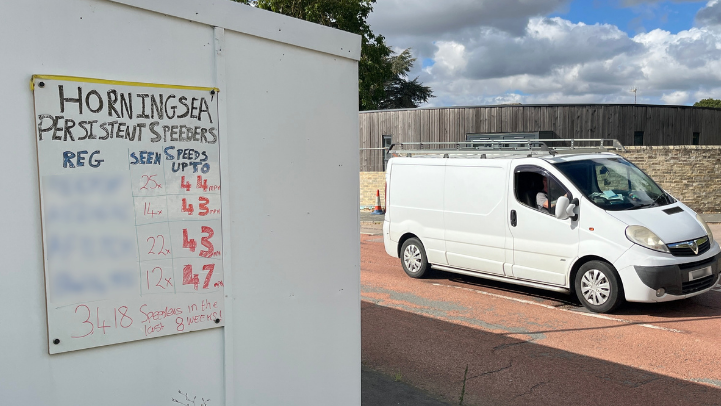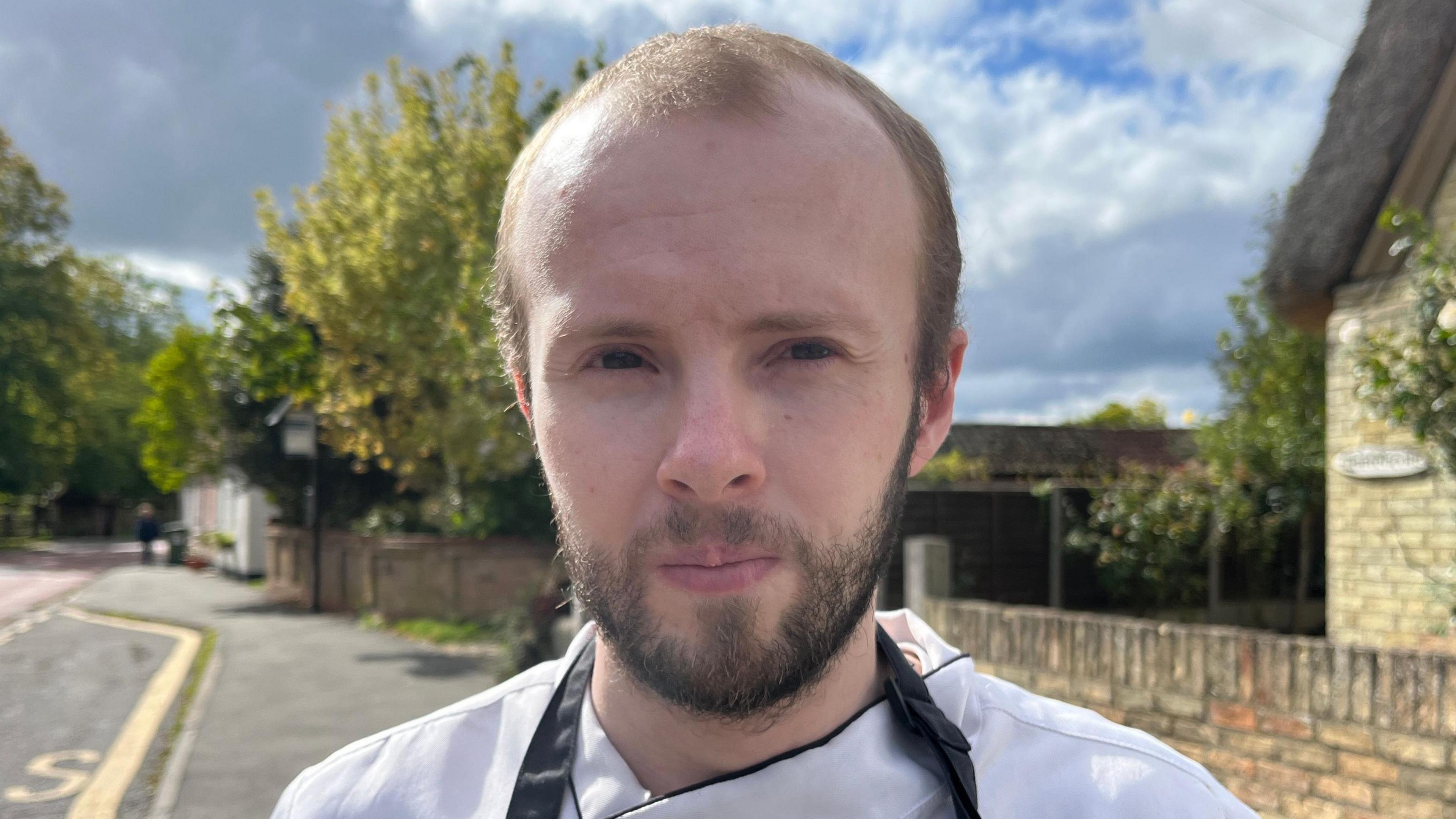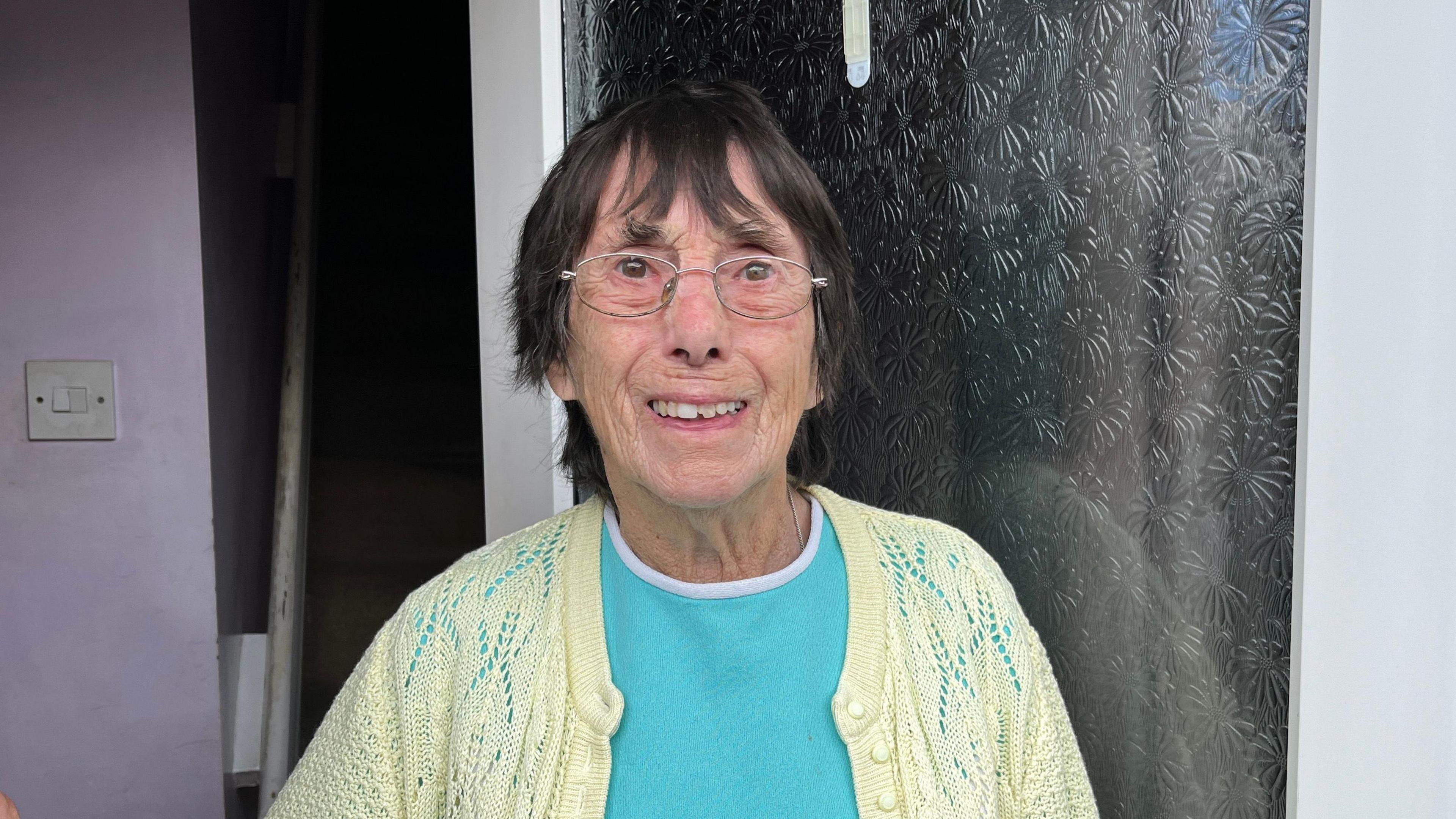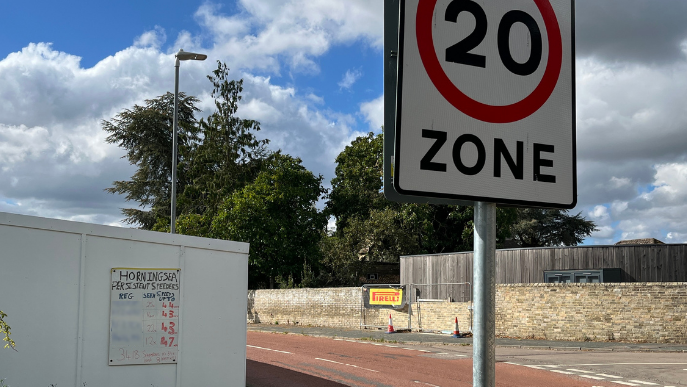Speeding drivers shamed on village whiteboard

A whiteboard has gone up near the start of a 20mph zone, which lists the registration plates of vehicles that have been regularly going over the limit
- Published
People living in a village have taken an unusual step to tackle persistent speeding by publicly displaying the registration numbers of offending vehicles on a whiteboard.
The initiative appeared in Horningsea, Cambridgeshire, where 20mph speed limits and other traffic calming measures were introduced in late 2024.
Residents said the changes have failed to reduce speeding which prompted a more visible deterrent, although it remained unclear who was responsible for the board.
Aaron, 28, a chef who has lived in the village all his life, said he no longer feels safe walking through the area.

Aaron, a chef from Horningsea, said the speeding was "getting dreadful"
The whiteboard lists repeat offenders, including how many times each vehicle has been recorded speeding and the speeds at which they were travelling.
Aaron said the board was not a "long-term solution... but something needs to be done".
"You don't know when a car's going to come speeding down the road.
"It's getting really bad, and someone is going to die at this rate if something doesn't get done," he said.
Mary Fishpool, who lives in Horningsea and has campaigned about traffic in the village for more than 30 years, described the situation as "terrible".
"It's become a job just to get across the road," she said, adding traffic lights could help slow down speeding vehicles.

Ms Fishpool said she had previously campaigned for a crossing in the area as "the cars don't wait - they just keep coming"
According to the board, 3,418 speeding vehicles were recorded in the last eight weeks.
Yet not everyone agreed with the new approach.
Brian Turner, who lives in Horningsea, questioned the legality of publicly displaying vehicle data.
"There must be concerns about infringement of personal liberty," he said, and he also raised concerns about the visibility of the speeding signs.
"Some of the [speed] signs are not possible to see because of trees and at night some of the bollards aren't particularly well lit.
"It's fine if you know the village but newcomers, plus the fact there is a caravan site at the far end of the village, who don't know the village will be driving through," he added.

Nicholas Lyes said police enforcement was the best way to tackle speeding
Nicholas Lyes, from the organisation IAM RoadSmart, said he understood why residents would take action, but police enforcement was the best solution.
Richard May, from the Cottenham Voluntary Speedwatch Scheme, told BBC Radio Cambridgeshire he sympathised with residents and understood the kind of "desperation" that led to the action.
"[But] for me it feels divisive and maybe antagonistic," he said.
He added that Cottenham's police-accredited speedwatch volunteers had seen a "noticeable reduction" in speeding, with about 90-95% of drivers responding when they saw volunteers on the roadside.
Cambridgeshire Police urged communities to join the official community speedwatch scheme, which provided roadside action and data to support road safety plans.
Get in touch
Do you have a story suggestion for Cambridgeshire?
Follow Cambridgeshire news on BBC Sounds, Facebook, external, Instagram, external and X, external.